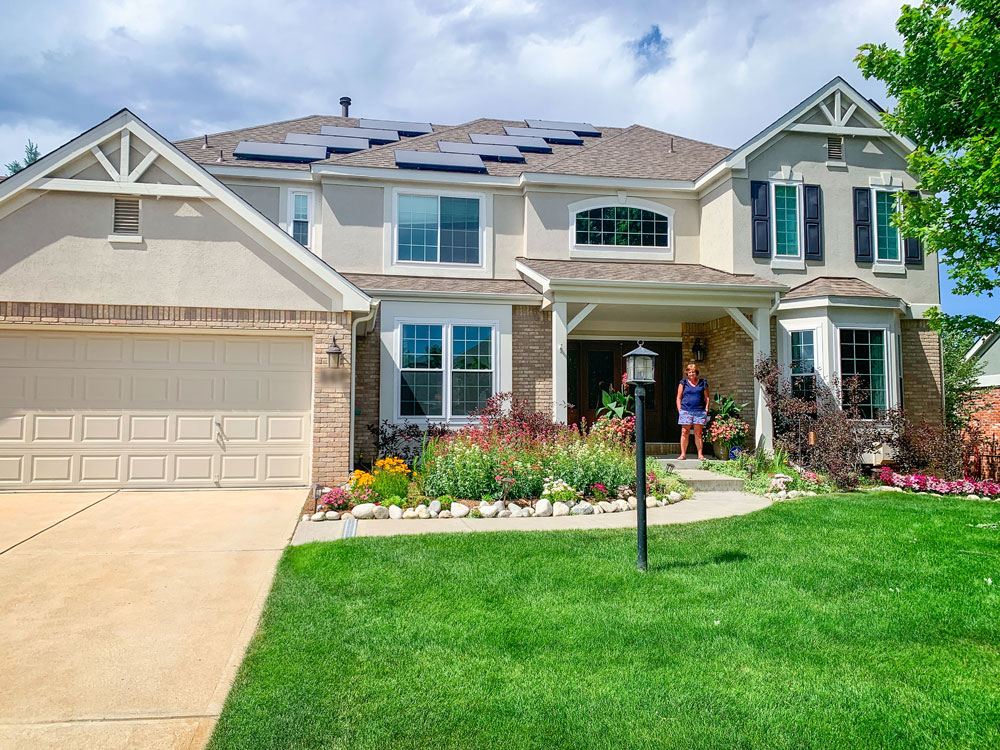Thinking sun-powered

Hidden Pointe neighbor Kim Schafer, pictured above, had solar panels installed three years ago and has been pleased with the cost savings she has experienced.
With Colorado’s reputation for a lot of sunshine, it is only natural to think it would be a good place for solar energy … and it is. Plus, with some incentives available, it is a great time to consider installing solar panels. At the end of 2023, close to 9,000 members of CORE Electric Cooperative had rooftop solar systems interconnected to its grid, with a combined potential capacity of more than 52 megawatts of power.
Neighbor Kim Schafer had solar panels installed on her Hidden Pointe home three years ago. They are costly to install, she said, but have been more beneficial than she thought they would be.
“On a monthly basis, we save $225; we pay $125 for solar every month and do not have an Xcel bill, which before solar panels was approximately $350 per month,” Kim explained. “And the rate doesn’t go up with solar panels. The bill will always be $125.”
Determining whether solar is a good fit for your home includes assessing:
- historical and future energy needs to determine how many panels will be needed, by reviewing past electricity consumption – typically 12 months – and anticipating future electricity needs (hot tub, EV, additional people, etc.)
- the sun exposure to the roof or proposed ground location
- the roof’s age and condition, space, orientation to the sun, and shading factors
- the age, size and capacity of the electric circuit breaker box
- how long you anticipate you will remain in the house.
If you invest in qualified energy-saving improvements to your home, such as solar panels, you may be eligible for a federal tax credit that equals 30% of the cost, with some limitations. This credit applies to improvements installed anytime now through 2032. However, not everyone qualifies for the tax credit, so speak with your tax professional before making a solar purchase.
An additional incentive if you are considering getting solar panels is the option to own or lease. With ownership, you can pay cash up-front or take advantage of generous solar loans with no money down, fixed payments and no early-payment penalties. If you do not qualify for the federal tax credit, there are other programs like solar leases that can qualify for the credit and apply it to the solar payment. Such a lease might be a good option and it can also offer a locked rate, shielding you from inflation.
CORE recommends members contact its engineering services department before signing any agreement to purchase or lease a rooftop solar system. CORE provides an information packet that includes a list of required documents, an interconnection agreement, and rules and regulations. To request a packet, call 303-688-3100. For more information, visit core.coop/my-cooperative/renewables.
To learn more about the federal tax credit, visit www.irs.gov/credits-deductions/residential-clean-energy-credit.
By Susan Helton; photo by Hollen Wheeler